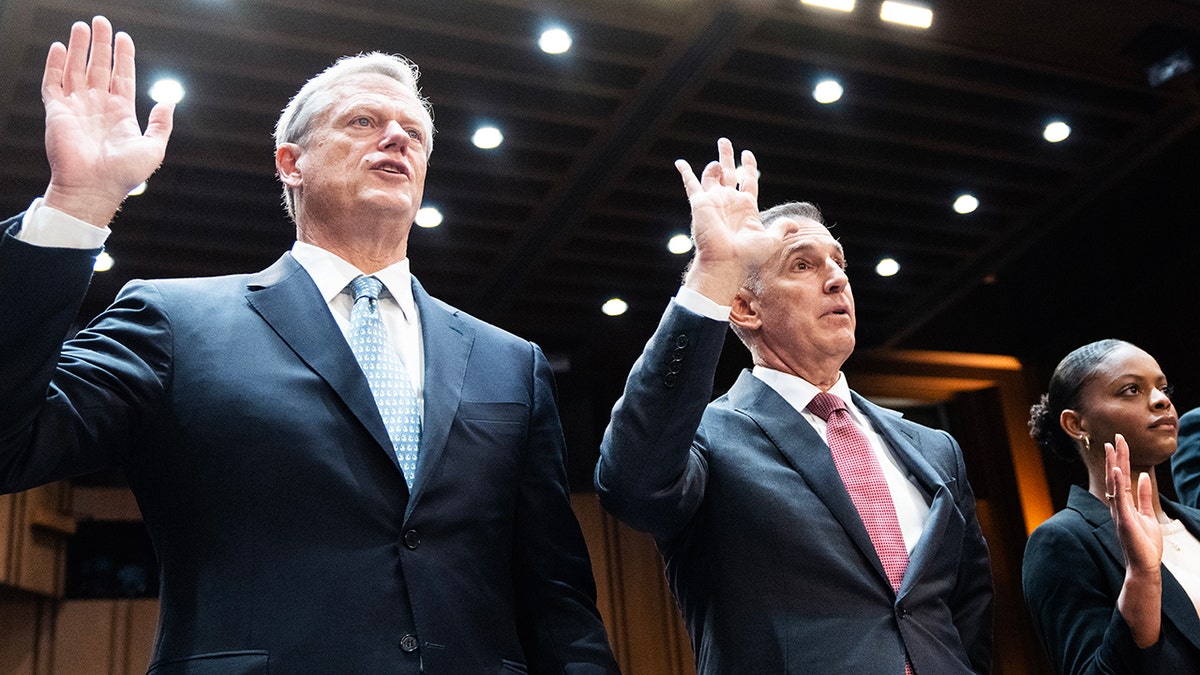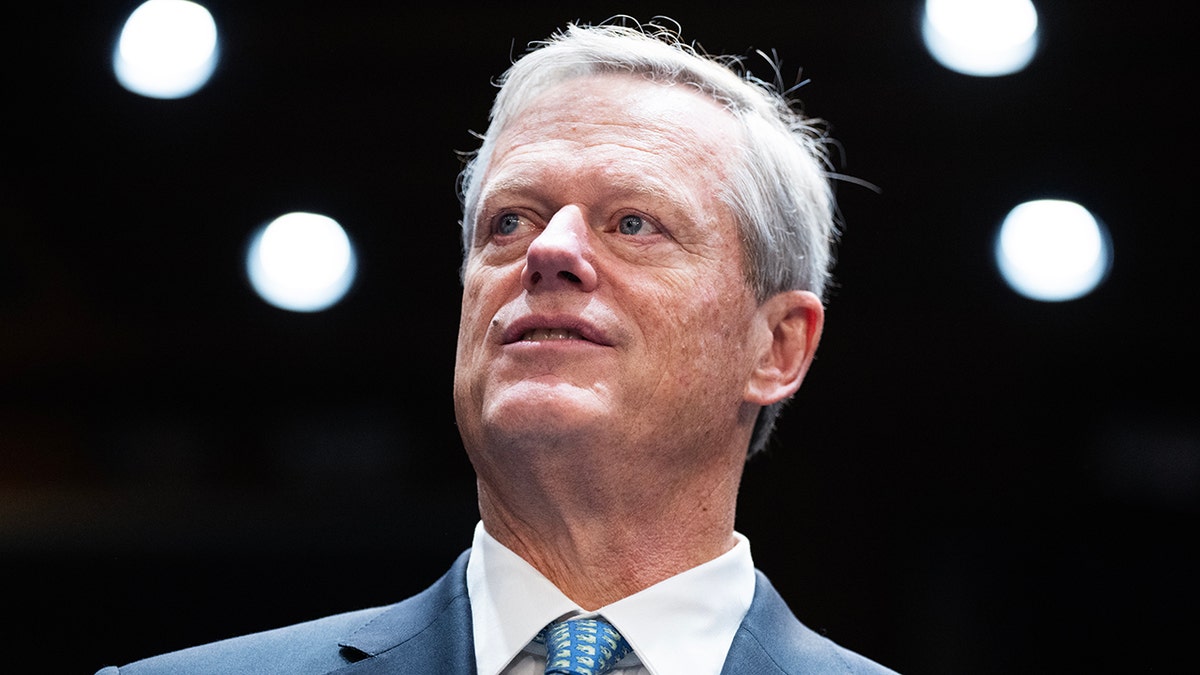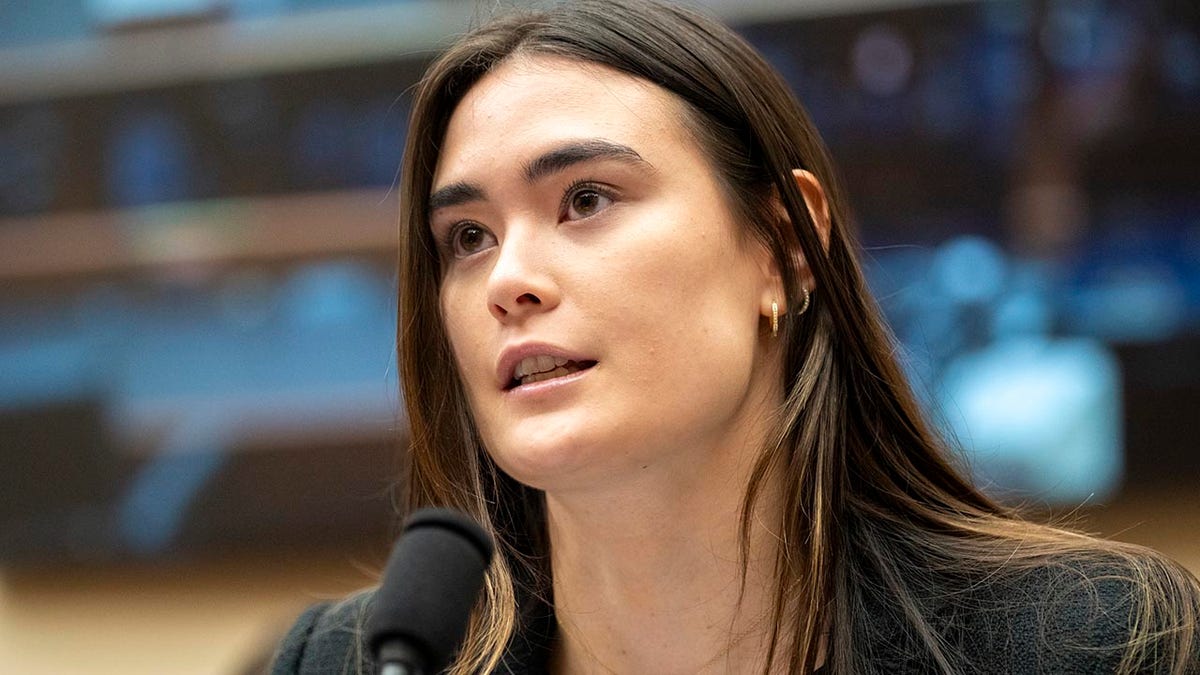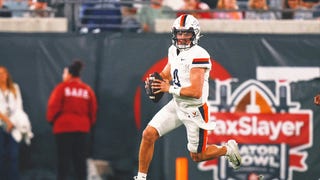Fox News Flash top sports headlines for October 17
Fox News Flash top sports headlines are here. Check out what's clicking on Foxnews.com.
Former Massachusetts governor and current NCAA president Charlie Baker on Tuesday distanced himself from his predecessor’s policies related to transgender athletes competing in women’s sports during his testimony before a Senate committee.
Baker, who replaced former NCAA president Mark Emmert in March, testified before the Senate Judiciary Committee on the future of college sports, specifically as it relates to Name, Image and Likeness (NIL).

From left, NCAA president Charlie Baker, Big Ten Conference commissioner Tony Petitti and University of Florida gymnast Trinity Thomas are sworn in to the Senate Judiciary Committee hearing titled "Name, Image, and Likeness, and the Future of College Sports," in the Hart Building in Washington, D.C., on Tuesday. (Tom Williams/CQ-Roll Call, Inc via Getty Images)
During his testimony, Baker was asked about the debate surrounding transgender athletes' participation in women’s sports, which became a contentious issue in 2021 with the emergence of University of Pennsylvania swimmer Lia Thomas.
"I'm not going to defend what happened in 2022," Baker said in response to questions about the sports governing body’s current policy with regard to transgender athletes being allowed in women’s locker rooms.
"I wasn't there. I was still governor of the commonwealth. What I will say is, we have very specific rules and standards around the safety and security of all our student athletes, and anyone who hosts one of our national championships has to accept that they know what they are and then abide by them accordingly.
"I don't believe that policy would be the policy we would use today," he continued.

Charlie Baker, president of the NCAA, arrives for the Senate Judiciary Committee hearing titled "Name, Image, and Likeness, and the Future of College Sports" in the Hart Building in Washington, D.C., on Tuesday. (Tom Williams/CQ-Roll Call, Inc via Getty Images)
Former NCAA Division I swimmer Paula Scanlan, who was a member of the University of Pennsylvania’s women’s team along with Thomas, testified before a House Judiciary subcommittee in July about her experience and revealed the impact Thomas’ presence in the locker room had on her as a survivor of sexual assault.
"My teammates and I were forced to undress in the presence of Lia, a 6-foot-4-tall biological male, fully intact with male genitalia, 18 times per week," Scanlan said in part.
"Some girls opted to change in bathroom stalls, and others used the family bathroom to avoid this. When we tried to voice our concerns to the athletic department, we were told that Lia’s swimming and being in our locker room was a non-negotiable, and we were offered psychological services to attempt to re-educate us to become comfortable with the idea of undressing in front of a male."
CLICK HERE FOR MORE SPORTS COVERAGE ON FOXNEWS.COM

Former University of Pennsylvania swimmer Paula Scanlan testifies during the House Judiciary Subcommittee on Constitution and Limited Government hearing on gender-affirming care for children in July. (Jasper Colt-USA TODAY)
Riley Gaines, a 12-time All-American and five-time SEC champion, shared a similar sentiment earlier this year when recalling the 2022 NCAA Swimming and Diving Championships.
"We were not forewarned beforehand that we would be sharing a locker room with Lia. We did not give our consent, they did not ask for our consent, but in that locker room we turned around, and there’s a 6-foot-4 biological man dropping his pants and watching us undress, and we were exposed to male genitalia," Gaines said at the time.
CLICK HERE TO GET THE FOX NEWS APP
Baker was pressed further about what measures the NCAA has taken to avoid a similar situation. He pointed to the new policies set by other sports governing bodies which the NCAA follows.
"As I said before, the rules around transgender athletes generally are more restrictive today than they were in ‘22. And I can state pretty clearly that no one's going to get forced into any sort of situation that's going to make them uncomfortable. We make that very clear in the guidance that we give to anybody who hosts one of our championships, period," he explained.
"I can tell you that the standards with respect to participation for trans athletes in women's sports have been adjusted since then and continue to be adjusted based on conversation with other governing bodies."











































